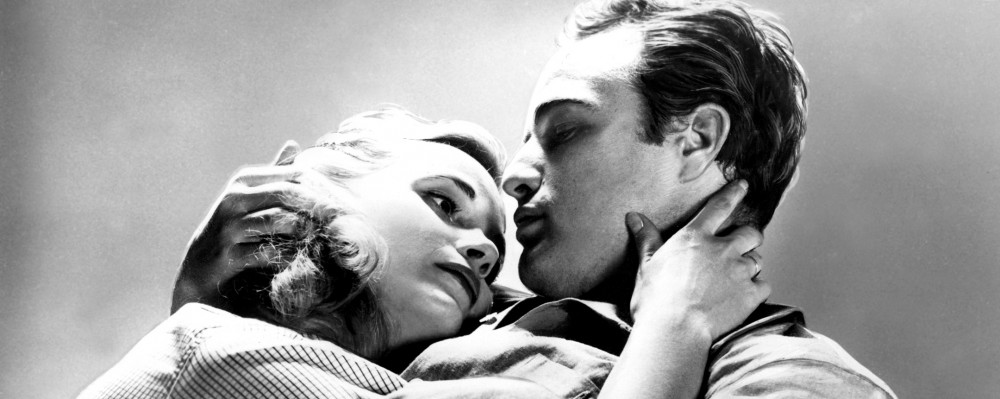
What is it about Stanley Kubrick’s 2001: A Space Odyssey that has made it such a success from the start? It had all the qualities of a film destined to fail commercially, and yet it was the number one box office draw of 1968 by beating out more expected titles like Funny Girl and The Love Bug. Well, lo and behold, here it stands half a century later still as a landmark that continues to exceed beyond pop-culture itself. Can we say the same thing about The Love Bug? And no, Herbie: Fully Loaded does not count. There are still big screen revivals of 2001 at least twice a year in Los Angeles alone. And for its fiftieth anniversary, it sold out shows dominated primarily by today’s generation. No, it wasn’t just late ’60s liberal arts students smoking one toke over the line—or, uh, most likely dropping acid—and remaining plastered on their seats for the “Star Gate” sequence that was what defined 2001’s success—although that certainly didn’t hurt its numbers. 2001 was and will always be an experience unmatched, because say what you will about interpreting its meaning, that was never the point. Nothing can compare with the mental suspension it posits you in, as if tapping you into some higher intellect beyond comprehension. It’s indescribable, really. And so long as movies exist, it will remain one of its best. Unquestionably, at number one it goes.
1. 2001: A Space Odyssey (Stanley Kubrick)
2. Once Upon a Time in the West (Sergio Leone)
3. Rosemary’s Baby (Roman Polanski)
4. Petulia (Richard Lester) and Teorema (Pier Paolo Pasolini)
5. Stolen Kisses (Francois Truffaut)
6. If… (Lindsay Anderson)
7. Faces (John Cassavetes)
8. Night of the Living Dead (George A. Romero)
9. Les Biches (Claude Chabrol)
10. Bullitt (Peter Yates) and The Thomas Crown Affair (Norman Jewison)
Pushing through several 1968 titles this month, I began to notice a pattern: Many of the year’s most enduring films are so pessimistic that they curdle. Just look at the Top Ten and see; nothing is safe, not even pregnancy. The Summer of Love was a ruse, as prominent political figures kept getting assassinated and families watched as young soldiers overseas got killed on national television right before Rowan & Martin’s Laugh-In or The Carol Burnette Show. So how shocking was something like Night of the Living Dead, really?
But let me get to the heart of the matter: the movies. Petulia is as emotionless as an infomercial, with all of the characters destructive in their heedless need to possess; it’s a masterpiece of cruelty and indifference. Teorema is the Pasolini film that he should become synonymous with today, not Salò; check it out and change my mind. If… introduced the film world to Malcolm McDowell’s sneer, and Les Biches began a string of continuously solid thrillers for Chabrol. Then there’s Bullitt and The Thomas Crown Affair, which certainly helped catapult Steve McQueen from the easy trappings of an action hero fad (remember Tom Laughlin?) and straight into the ethers of Hollywood legendary.
Those that missed the cut include what is probably considered the quintessential Cuban art house film: Memories of Underdevelopment. Peter Bogdanovich debuted with Targets, which is more frightening today than when it was first released. And Nagisa Oshima had Death by Hanging, brilliant but too labored. There’s Truffaut’s The Bride Wore Black, another humdinger for Truffaut the year he made the sublimely whimsical Stolen Kisses. Ingmar Bergman was really scrapping the bottom of the barrel of despodence with Shame and Hour of the Wolf. There’s Paul Morissey’s Flesh, which, if we’re going to discuss a director exploiting the sex appeal of their star, is better than Vadim’s male gaze of Jane Fonda in Barbarella. In fact, I liked her more in the omnibus oddness, Spirits of the Dead, lusting for her real life brother (her brother!). And that movie’s got a glorious storyline in the Fellini directed vignette with Terence Stamp about a drunken binge of kamikaze proportions miles better than Leaving Las Vegas. But focus, man. Focus and finish. There’s two wonderful dark comedies: No Way to Treat a Lady and Pretty Poison—the latter blinding you with Tuesday Weld’s talent. There’s also Wild in the Streets, The Devil Rides Out, Danger: Diabolik, and The Girl on a Motorcycle for those drive-in junkies. Romeo and Juliet and The Lion in Winter are still engagingly effective period pieces. Sergio Corbucci churned out a personal favorite spaghetti western—one that’s fatalistic to the hilt (again, a bleak year, man)—with The Great Silence. And, lastly, there’s Play Dirty and Witchfinder General to wrap it all up as the two hovering nearest the Top Ten… Well, twelve. Ahem. Anyway, I think I just wrote a mantra here. Now where’s the exit?
Next time: 1923. And, gosh darn it, I mean it.

No mention of Head?! For how much it is directly about what you’re discussing here: “The Summer of Love was a ruse, as prominent political figures kept getting assassinated and families watched as young soldiers overseas got killed on national television, right before Rowan & Martin’s Laugh-In or The Carol Burnett Show,” I thought it was interesting you didn’t mention it at all!
Before I publish a post, I always have a list of movies to reference from that given year—and I mean a loooong list—that I end up deleting in order to save space. Head was on this list. Trust me, I cherish that movie because it’s so wild in its Zero for Conduct/Richard Lester boyish anarchy, and it uses aging Victor Mature just right, you know? But there are also heaps of other movies that, unfortunately, also had to be omitted (i.e. Spider Baby, Symbiopsychotaxipliasm). It was just too good of a year, and I’m sticking to that.
I understand. I’ve gone through that list making process too. I just thought given how it connected so much with what you were discussing, it was notable, its absence from being mentioned at all. ♥️